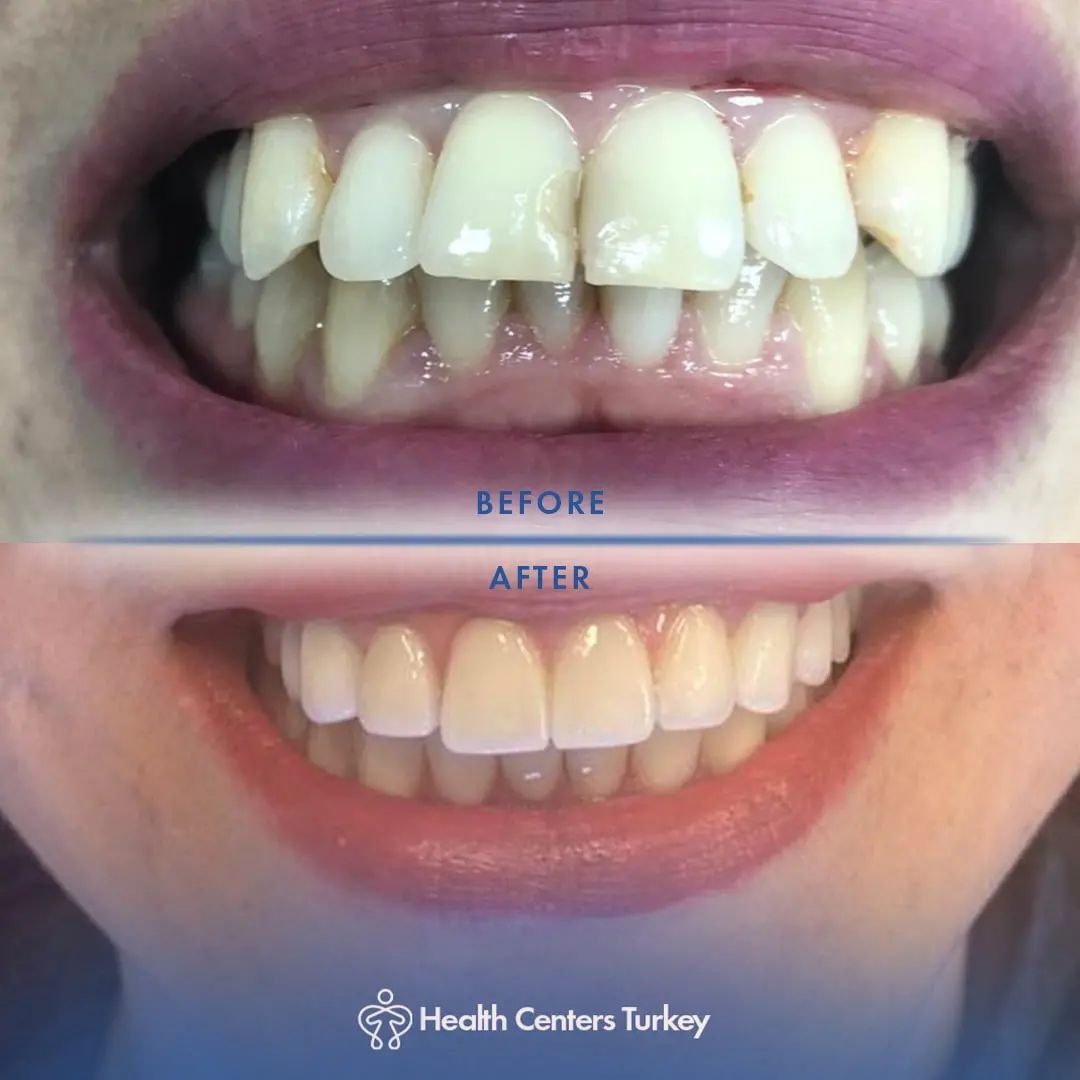Economical Dental Care with Quality Assurance
Explore the Newest Dental Technologies Available in Turkey
Dental implants have turn out to be a popular resolution for those looking to replace missing teeth. Understanding how these implants can affect adjacent teeth is crucial for anyone contemplating this procedure, as nicely as for dentists and specialists concerned in dental care.

One important facet is that dental implants are designed to be anchored into the jawbone, which means they're unbiased of adjacent teeth. Unlike dental bridges, which frequently require the alteration of neighboring teeth, implants can fill the gap with out compromising the health or structure of those surrounding teeth.
This independence helps preserve the integrity of adjacent teeth. When a tooth is misplaced, there could be a natural tendency for neighboring teeth to tilt or shift into the empty space. Such motion can lead to misalignment, which might affect chunk and general oral health. By placing an implant, you successfully prevent this potential shift, promoting higher alignment in the long term.
Improve A Oral Aesthetics using State-of-the-Art Dental Solutions
Additionally, dental implants assist preserve bone density in the jaw. A natural tooth root offers stimulation to the encompassing bone, keeping it wholesome and powerful. When a tooth is missing, the bone can start to deteriorate as a end result of lack of stimulation. With a dental implant mimicking a natural root, bone loss can be minimized, which not directly benefits adjacent teeth by preserving the general structure of the dental arch.
While dental implants are advantageous, improper placement can influence neighboring teeth. If an implant is positioned too shut to another tooth, it may exert undue pressure on that tooth, resulting in discomfort or potential damage. Proper planning and imaging strategies are important for avoiding such points.
Discover Comprehensive Oral Services throughout Turkey
Moreover, sustaining good oral hygiene is crucial after receiving an implant. If not correctly cleaned, surrounding teeth may turn out to be susceptible to dental issues corresponding to decay or gum disease. This underscores the importance of diligent oral care following the process to make sure both implants and adjacent teeth stay wholesome.
Regular dental check-ups are also important for monitoring the health of surrounding teeth. Dentists can identify any shifts or potential problems early, allowing for well timed interventions. This proactive approach ensures that both the implant and adjacent teeth can coexist with out complications.
Extensive Dental Services for A Radiant Smile
Another consideration is the influence of implants on chunk force. When a single tooth is missing, the load of chewing could shift to adjacent teeth, potentially leading to wear or pressure. Implants restore proper chew dynamics by redistributing forces within the mouth, which can protect surrounding teeth from undue stress.
Some sufferers may elevate concerns concerning the appearance of dental implants. Well-placed implants can blend seamlessly with current teeth, bettering general aesthetics. In distinction, failing to exchange a missing tooth can lead to aesthetic points, including collapsing of facial structure and adjustments in smile dynamics.
It's also price discussing the psychological features of dental health. Experiencing tooth loss can adversely affect one’s vanity and willingness to engage socially. By restoring your smile with implants, you'll be able to positively affect not only your oral health but additionally your emotional well-being.
Long-term success of dental implants usually hinges on varied components, together with the patient's health, maintenance habits, and the dig this standard of the initial process. If adjacent teeth are healthy and correctly cared for, the chances are they will continue to thrive alongside the implants.
Attain Your Desired Teeth Look with Expert Care from Turkey's Dental Clinics
In conclusion, dental implants play an important function in not just restoring particular person smiles, but in preserving the health and structure of adjacent teeth. By stopping shifting, sustaining bone density, and redistributing chew forces, implants can make positive that surrounding teeth remain in optimal condition. Proper placement, hygiene, and common dental visits can further enhance the advantages of dental implants, leading to a more healthy, extra assured smile for years to return.
- Dental implants can help maintain the alignment of adjacent teeth by offering a stable anchor, preventing adjacent teeth from shifting into the gap left by a missing tooth.
- The presence of an implant could stimulate bone progress in the jaw, helping to preserve the general structure and integrity of the adjacent teeth.
- Unlike traditional bridges, implants do not require alteration of surrounding teeth, thus preserving their power and anatomy.
- Implants can enhance the distribution of chew forces evenly throughout the dental arch, reducing the stress on neighboring teeth throughout chewing.
- A well-integrated dental implant can decrease the risk of bone loss in the area surrounding adjacent teeth, contributing to their long-term health and stability.
- The aesthetics of adjacent teeth may be improved as a outcome of help supplied by implants, which might lead to better overall cosmetic outcomes.
- With proper placement, dental implants can prevent gum recession around adjacent teeth by sustaining adequate dental architecture.
- Implants can help mitigate the risks of periodontal disease in close by teeth by selling healthy gum tissue and offering a washable floor.
- Long-term success of dental implants can result in improved oral hygiene routines, which in flip benefits the health of surrounding teeth.
- The improved functional ability of an implant can encourage sufferers to chew more successfully, thus rising saliva manufacturing and aiding in the protection of adjacent dental tissues.undefinedHow do dental implants have an effect on adjacent teeth?
What are dental implants and how do they interact with adjacent teeth?undefinedDental implants are artificial tooth roots that are surgically positioned into the jawbone. They provide a stable basis for replacement teeth while ensuring minimal disruption to adjacent teeth, preserving their integrity and alignment. The Growing Popularity of Dental Treatments.
Receive Premium Dental Implant Services at Low Prices
Can dental implants trigger problems for nearby natural teeth?undefinedGenerally, dental implants do not hurt adjacent natural teeth. However, if the implant isn't positioned accurately or if there’s inadequate oral hygiene, it could result in complications corresponding to adjacent tooth decay or gum disease.

Will getting a dental implant change the greatest way my adjacent teeth feel?undefinedMost patients report no change in the sensation of adjacent teeth after implant placement. However, it may take a while to regulate to the presence of the implant, much like how one could adapt to different dental restorations.
Can dental implants assist protect the health of adjacent teeth?undefinedYes, dental implants might help maintain the health of adjacent teeth by preventing bone loss that may happen after tooth loss. This preservation helps the alignment of close by teeth, decreasing the risk of shifting or misalignment.
Reliable Braces and Aligners provided in Antalya
Do I want to switch adjacent teeth when getting an implant?undefinedTypically, adjacent teeth do not need alteration when placing an implant. This is amongst the benefits of dental implants over traditional bridges, which often require reshaping adjacent teeth for support.
How does the therapeutic means of an implant affect nearby teeth?undefinedThe healing course of includes osseointegration, where the implant fuses with the jawbone. During this time, adjacent teeth remain unaffected and retain their operate, though it’s essential to observe post-operative care suggestions. Exceptional Dental Services Focused on Quality Care.
Enjoy Excellent Dental Care at Affordable Prices
Can dental implants lead to bone loss round adjacent teeth?undefinedIf dental implants are placed correctly and cared for read the article adequately, they want to not lead to bone loss round adjacent teeth. In reality, they can help stimulate bone development, combating the natural bone loss that always follows tooth extraction.
What precautions ought to I take to guard adjacent teeth after getting an implant?undefinedRoutine dental hygiene, including brushing and flossing, together with regular dental check-ups, is essential. Avoiding exhausting meals and following your dentist’s aftercare instructions may even shield both the implant and adjacent teeth.
Is it widespread for adjacent teeth to shift after an implant is placed?undefinedIt's not typical for adjacent teeth to shift after an implant placement, especially when the implant is positioned correctly and maintained correctly. If there’s any movement, it could be because of different underlying issues that must be evaluated by a dental professional.